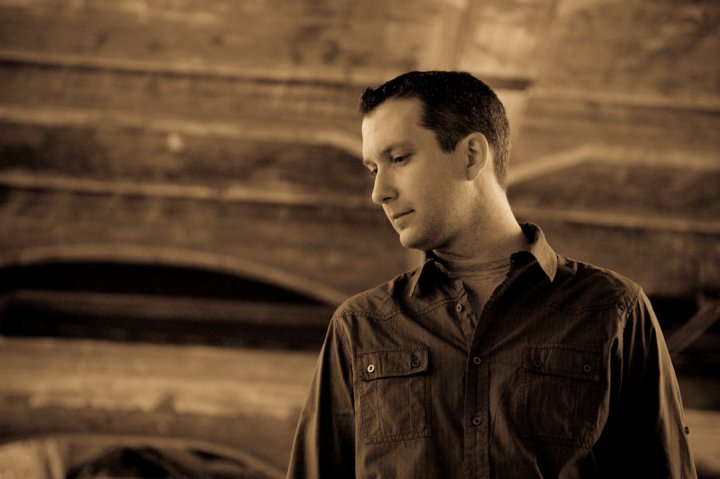Hockey, hockey, hockey
- At January 26, 2013
- By Nathan
- In Career & Life Planning
 0
0
How can you tell when a positive part of your life has become a distraction? Don’t expect a warning bell to go off or wait to hear a buzzer. It isn’t always easy to know.
For example, if you enjoy following the National Hockey League, how much time spent watching hockey would you say is too much? Four hours per week? Ten hours a week? Twenty? At what point has it gone too far?
Feel free to substitute another sport or hobby here if you like. Whether it is soccer or football or surfing the Internet, try to identify what could prevent you from living a life that is much more significant. Reading the news, trying to stay up on what is going on in the world, probably consumes too much of my time. What holds your attention?
How do you decide when an interest like hockey has become too important?
Five team jerseys in the closet, two jackets, three hats, four cups, six posters, and two massive team flags flying from each vehicle you own might be a clue. Naming all of your kids “Wayne” after the great Wayne Gretzky could be another. Hosting a hockey night in your home every other night of the week would also be cause for concern. There are likely also many early warning signs that indicate a problem.
There is, of course, nothing wrong with having a little fun and cheering on your favorite team. But how much time and energy and enthusiasm is too much? Where do you draw the line? And what will you miss out on if you don’t?
Fanatical enthusiasm is often worn like a badge of honour when it comes to sports. Few people would declare, “Watching ping-pong is my life purpose!” But in Canada, watching grown men whack a puck back and forth – and beat each other up in the process – comes close.
Given that the bickering between the billionaires and the millionaires has recently come to an end, this is admittedly an odd time to be posing this question. The lockout has finally ended after months of negotiations. For many, this is a great relief. Thankfully, the conflict is over. When it seemed like it would be game over for the entire season, it is now game on.
After such a long break, Sidney Crosby and Alexander Ovechkin are likely trying to remember how to lace up their skates. Okay, maybe not.
It almost sounds unpatriotic to say that I have enjoyed the break from our so-called national pastime. But it’s true. For hockey, among other things, has a way of barging in and demanding enormous amounts of time and attention. More and more and more attention seems to be required. It is never enough. What started out as a fun and friendly game to play on the pond in the winter has turned into a campaign to control your life. When the hockey-cult mindset kicks in things get a little crazy.
“Kill them!!!” That’s what the mother of one of the guys on my team use to yell from the stands. As I recall, we were losing in the first round of the provincial playoffs. And she didn’t seem to care much for the young kids on the other team.
Do you want to wake up one morning in a seniors home (that is, if you live to reach old age) and realize that you had been compulsively committed to secondary and second-rate life goals? One day, perhaps during a break from playing bingo, a small visitor is bound to ask, “So what is the most important thing that you did with your life, Grandpa?” What will you say? Are you going to talk about all the games you have watched and played?
A clock sits on the desk to my right ticking steadily; a reminder that your time on this earth is limited as is mine.
© Career & Life Direction 2013. All rights reserved.
Making a mission statement
- At January 16, 2013
- By Nathan
- In Career & Life Planning
 0
0
What is a mission statement?
A personal mission statement is a brief summary of your life focus. As such, it is larger than a career and much bigger than a job. And while it connects to your deepest convictions, it adds more information. Your statement is unique to you. It serves to direct your entire life by identifying the larger dreams and goals that drive you.
How do you make a mission statement?
It isn’t easy. Don’t expect it to be easy. You likely won’t find a quick formula or method to produce one. Although here is a suggestion: Give yourself, say, five years to live a busy, shallow, frantic, and non-reflective life. Then, stop and intensely reflect on the futility of the past five years. Meditate long enough to become good and frustrated. At this point, pull out a piece of paper and write down what you would much rather be doing with your life.
What does a mission statement look like?
My larger goal is to help restore Western civilization as a light in God’s world by encouraging the development of healthy and growing Christian communities and by expanding the influence of Christian individuals and organizations. At the same time, I hope to inspire people everywhere to develop their God-given potential for the common good.
Why bother working on a mission statement?
While there are likely many reasons, here are a few to consider:
1. To identify larger goals
A mission statement, or whatever you feel like calling it, will help you spend your time and focus your energy on something significant. Each person reading this is small and limited and can’t do everything. That being the case, what are you going to do with your life? How will you spend your time? Decisions must be made.
Writing down significant goals amounts to saying, “I am going to aim for this and not that.” So if you are tired of drifting along, doing a little of everything or a lot of nothing, you might want to work on your mission statement.
2. To set personal boundaries
A mission statement functions like a personal boundary. In other words, it is like a fence that separates your yard from your neighbour’s. For the most part, what your neighbour does on his land is up to him. If George began enriching uranium in his garage and building nuclear missiles pointed at you…now, that might be different. Usually, though, what George does over there is up to him and what you do – in your yard – is up to you. That’s how it works.
Do you ever feel like you are living someone else’s life? If so, you might need to have a look at your fence. Is it still there? Does it need repair? Take the time to establish your personal boundaries by formally identifying your life direction.
3. To discover core convictions
A mission statement will force you to think about what you believe. Unless, of course, you adamantly refuse and choose not to. Although that may be difficult. But do you really want to live a random and arbitrary life? The catchy slogan, “Practice random acts of kindness” could just as easily have been, “Practice random acts of cruelty!”
Sure, having strong convictions does not necessarily result in more of heaven here on earth. It all depends on what you truly believe. Look at Mali. But a widespread “whatever” mentality is good news if you were hoping for a little more hell. So keep asking “Why?” until you get answers. Go from there.
The short answer, is that it is a good idea to write a mission statement because this is another excercise that could help you reach your true potential.
Attempting to write a mission statement makes sense once you realize that writing is the process by which people usually discover things they don’t aleady know.
© Career & Life Direction 2013. All rights reserved.
Paying attention to your life
- At April 23, 2012
- By Nathan
- In Career & Life Planning
 0
0
A brief thought on a busy day:
 Many things in this world will make you feel like your life doesn’t really matter. But it does. You might not be able to see and measure the difference that you make. But you do make a difference. You will make a difference.
Many things in this world will make you feel like your life doesn’t really matter. But it does. You might not be able to see and measure the difference that you make. But you do make a difference. You will make a difference.
So pay attention to your life. Try to make the best use of your life that you possibly can. Invest it wisely. Make it count. To borrow a phrase from a video linked to the previous post, “Give us what you have got!”
With that in mind, can you think of one specific and practical step you have recently taken in order to pursue your God-given potential and become all that you were intended to be? Would you feel comfortable telling people about it here at Career & Life Direction? Why don’t you take a moment to write down what you have recently decided to do and how you think it might fit with your larger life purpose. Send it on in. Here is the magical contact form.
And here are a few bizarre examples to get you thinking:
“Moving to the moon has been a long-term dream of mine. As I write this, I am half way up Mount Everest on my quest to get a little bit closer to my desired destination. The view up here is fantastic!”
“Joining a nudist colony has always been the only thing I really wanted to do with my life. The only problem is that where I live it is way too cold. But I have just decided to completely stop walking and drive absolutely everywhere I go in an attempt to accelerate global warming. Now if only I could figure out what to do about all the mosquitoes.”
“I recently decided to go back to school. And for no reason in particular. More or less just because. You see, I got a new VISA card to add to my collection and needed to find a way to spend the money. Your website has been a true inspiration in my life. Keep up the good work.”
Your comments will, of course, be much more inspirational. Feel free to include your name, city, country, and your brief written contribution to the cause.
And you never know. You just might encourage someone else to take the next significant step in their life.
© Career & Life Direction 2012. All rights reserved.
A quest for clarity
- At March 24, 2012
- By Nathan
- In Meeting Needs
 0
0
At first glance, “Raise a Little Hell” by the Canadian band Trooper has to be one of my all-time least favorite songs. And for obvious reasons, I suppose. For I am much more into heaven-raising than hell-raising.
But more than that, part of the problem with this particular song is that it is crafted well enough to have a musical hook; it seems to be designed to draw people in. Usually this is a good thing. In this case, however, once you are in, listening, alert…there doesn’t immediately appear to be much of value to hear – except the same old line over and over and over again. Which could make for a dull, boring, song.
On the surface, it is also disappointing. There is a sense of wasted potential. It could have been good. Or considerably better, anyway. A celebration song. An energetic anthem, perhaps, to liven people up and rally the troops for a worthwhile cause, etc. Or at least an inspirational beach-walking song if nothing else (e.g. “Find a pretty shell. Find a pretty shell. Find a pretty shell. Hey!”). A little on the loud side for a peaceful beach setting, but a lyrical improvement nonetheless. Anything would be, you might think. Anything except maybe “Let Viterra Sell.”
Read More»Dream big. Act small.
- At December 31, 2011
- By Nathan
- In Leadership
 0
0
Having a sense of direction, knowing the next small step in the larger plan, can be very beneficial to individuals and organizations. This way, important projects can be more easily identified and accomplished in a specific period of time.
I once applied to work for a Christian-based organization in Canada that had a related problem. Numerous leadership teams had produced impressive mission-statements, but very little was ever accomplished. Or so I was told.
The plan may have looked good on paper, as they (whoever “they” are) say, and these men and women may have even had the best of intentions. But, for whatever reason, they struggled to practically guide a group of people towards a specific destination. They appeared to know where they wanted to go, but just couldn’t seem to get there.
That is sad, even tragic, because as this story repeats itself over and over around the world it means that millions of people are likely failing to fulfill their full God-given potential.
Organizations and individuals can become stuck, and this post is one small attempt to help you or your organization get out of the muck, as it were, and finally move ahead. But please, if you sense that this describes your situation, spend as little time and energy as you can in a state of mournful self-condemnation. No, you are not a complete failure, or a sorry excuse for a human being. Turn those messages off. Stop. Think. Learn. Adjust. And then, move ahead.
If you are looking for an easy way to remember the point of this discussion may I suggest the following four small words:
Dream big. Act small.
Complicated, varied, and shall be we say “highfalutin” management-type lingo can be part of the problem. I am not sure if I could tell you the difference between a vision-statement and a mission-statement, a strategy and an objective, a stage or a phase, if my life depended on it. I have been in boardrooms and participated in futile attempt to separate and define these various words. It is like nailing jello to a wall, as the infamous “they” people say.
Begin, rather, with the simple image of a funnel. Whatever language you choose to use, start big – at the wide end of the funnel – and slowly work your way down to the specific and small actions that can be taken. How big? I have read a lot of job descriptions, hundreds of them, produced by reputable organizations in many parts of the world. To be honest, it sometimes sounds like these groups are mainly concerned about their own survival. May I say, straightaway, that organizational or personal survival is not a large enough goal, or an appropriate place to begin. Yes, paying the bills is important. But you don’t exist primarily to pay bills.
What happens next, is often where more confusion takes place. For if the big beginning is big enough, it will feel overwhelming and nobody will know what to do next. Almost a century ago, Henry Ford decided that he wanted to build a car that ordinary Americans could afford. Where do you start? You start by putting a plan together that, if followed, will at least potentially transform the “big dream” into practical reality.
But there is so much that I cannot control, you say. True enough. And there always will be. In case you are wondering, I am not suggesting that planning is somehow a substitute for prayer or that it will guarantee success. But, at the same time, there is very often something small and tangible that you or your organization could be doing that you are just not in a position to see right now. Taking the time to put together a detailed and practical plan can help you perceive the possibilities.
If you do not have a grand vision or goal or dream, start with that. If you do not have a credible plan, take the time to produce one. If you are not intentionally following your plan, start today.
Dream big. Act small.
Might make a good resolution for the new year.
*Here are a few related discussion questions
© Career & Life Direction 2011. All rights reserved.
Until the cows…
 Cows. Just great. I come here looking for timely insight that will potentially launch me in an exciting new direction…and this guy is writing about cows. Doesn’t he know that I am busy, stressed, frazzled, and a bit dazed from staring at this screen for hours? Really. I have places to go, things to do, people to see, more coffee to consume, etc.
Cows. Just great. I come here looking for timely insight that will potentially launch me in an exciting new direction…and this guy is writing about cows. Doesn’t he know that I am busy, stressed, frazzled, and a bit dazed from staring at this screen for hours? Really. I have places to go, things to do, people to see, more coffee to consume, etc.
Earth to blog-posting person: I need something clear, something quick, something practical that I can take with me into my hectic day. Okay.
Read More»Setting goals
- At December 27, 2011
- By Nathan
- In Career & Life Planning
 6
6
Rather than drone on about the importance of setting goals, I have decided to tell you a little about my goal-setting journey as it relates to the development of Career & Life Direction. That way, you can gain a better sense of how identifying and clarifying goals could make a difference in a variety of areas in your own life.
So, here we go. I have 3 simple goals right now for this website:
1. To improve and expand the service that I offer.
2. To increase the number of people who are interested in this service.
3. To find a way to make this service profitable.
In other words, I am trying to provide a valuable service, to a growing number of people around the world, and eventually make a living in the process.
Read More»




































